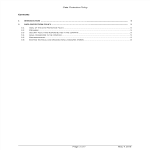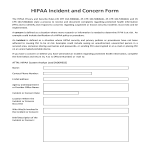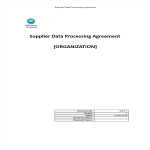Cloud Computing IT Security Standard

Speichern, ausfüllen, drucken, fertig!
Download this Cloud Computing CyberSecurity Standard if you are working on IEC, NIST, ISO27001:2013 or other IT and Cyber Security Standards and control objecti
Preis: USD 8.99
Jetzt downloaden!

Verfügbare Premium-Dateiformate:
.docx- Dieses Dokument wurde von einem Professional zertifiziert
- 100% anpassbar
Compliance Regelkonformität IT information technology Informationstechnologie IT SOP GDPR DSGVO Iso GDPR template DSGVO-Vorlage ccpa iso27001 isms ccpa template CCPA Vorlage nist standard iso it standard ISO-IT-Norm iso27001:2013 information security standards pdf Standards für Informationssicherheit PDF security standards definition Definition von Sicherheitsstandards network security standards Standards für die Netzwerksicherheit cyber security standards uk Cybersicherheitsstandards in Großbritannien cybersecurity Cybersicherheit cyber security compliance standards Beachtungsstandards für Cybersicherheit nist security standards information security standards Standards für die Informationssicherheit it security management IT-Sicherheitsmanagement information security best practices Bewährte Vorgehensweisen für die Informationssicherheit information security policy standards Standards für Informationssicherheitsrichtlinien it security IT-Sicherheit security techniques Sicherheitstechniken information security management systems Informationssicherheits-Managementsysteme cybersecurity standards Standards für Cybersicherheit IT compliance IT Regelkonformität it standard operating procedure IT-Standardarbeitsanweisung it security compliance Einhaltung der IT-Sicherheit how long does it take to implement iso27001 Wie lange dauert die Implementierung von ISO27001? iso27001 questions iso27001 Fragen iso 27001 controls list iso 27002 checklist ISO 27001 Kontrollliste ISO 27002 Checkliste
How to create a Cloud Computing IT Security Standard? Download this Cloud Computing CyberSecurity Standard if you are working on IEC, NIST, ISO27001:2013 or other IT and Cyber Security Standards and control objectives.
As an innovative organisation, your Company does not restrict itself when considering the engagement of ICT services from external service providers, in the delivery of business objectives. The purpose of this Standard is to set out the rules and requirements that must be satisfied when leveraging cloud computing services offered by a Cloud Service Provider (CSP). Your Company may wish to engage a CSP to:
- Minimize the capital expenditure required to procure and deliver IT and software assets using traditional IT service delivery models.
- Gain access to leading technology, offering enhanced and cost-effective resiliency solution in comparison to an in-house solution.
- Obtain elastic capacity that is flexible and can instantaneously expand to meet unexpected rapid increase in demand of client-facing services.
- Leverage technologies of cloud services for the provisioning of current and future services without additional investment (e.g., hardware/software, personnel capacity/expertise etc).
Appropriate data security controls reduce the likelihood (and impact) of data breach incidents during various phases of the data lifecycle. The purpose of this standard is to set out the rules for securing the companies' data during transmission and storage. This document provides best practice recommendations on information security management for use by those responsible for initiating, implementing or maintaining information security management systems (ISMS).
Nowadays, with the digitalization of our society, the need for data protection became more important. The latest IT Security Standards involve the application of technology to broader social and institutional contexts, and thereby contributes to the servitization of companies, and affects how they compete and interact. This document contains security technology solutions to protect data classified as “Highly Sensitive”, “Sensitive”, “Private” or “Public” as per the Data Classification Standard and Data Handling Guidelines. Specifically:
- Cryptography – Encryption and hashing solutions for protecting sensitive data when in transit or storage, and
- Data Masking – Data masking is a technology for obscuring sensitive information in non-production environments. Through data masking [Company Name] protects the content of sensitive data in non-production environments to ensure that:
- Application developers, testers, privileged users, and outsourcing vendors do not have unauthorized access to such information.
- The data maintains the referential integrity of the original production data.
Download this Cloud Computing Security now. Besides this document, make sure to have a look at the IT Security Roadmap for proper implementation and this fit-for-purpose IT Security Kit here with over 40 useful templates. The document(s) are easy to modify and can be downloaded directly after purchase.
HAFTUNGSAUSSCHLUSS
Nichts auf dieser Website gilt als Rechtsberatung und kein Mandatsverhältnis wird hergestellt.
Wenn Sie Fragen oder Anmerkungen haben, können Sie sie gerne unten veröffentlichen.


